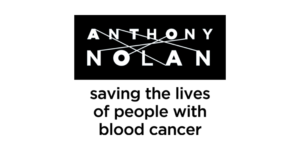Case study: Anthony Nolan
State of Open: The UK in 2021
Phase Two: “UK Adoption”


Danny Attias, Chief Digital & Information Officer
Synopsis
Anthony Nolan is a UK based charity that saves the lives of those with blood cancer. They developed ATLAS, a project that matches patient DNA with stem cell donors, speeding up this process by an enormous amount, thereby improving and saving countless lives. An innate interest in open source within the workforce meant the digital team had the skills needed and were excited to develop the code using open source. This led to a generic architecture that other have been able to use and benefit from due to its open source nature. Open source has allowed charities to have the same level of resources that their commercial counterparts have, saving a tremendous amount of charitable money.
7.6 Anthony Nolan: A global impact
In conversation with Danny Attias, Chief Digital and Information Officer
Anthony Nolan is a UK based charity saving the lives of people with blood cancer, by recruiting potential stem cell donors, funding ground-breaking research and providing the best post-transplant care to patients with its clinical nurses. With a team of 350 people, 30 in digital, the charity has facilitated more than 22,000 stem cell transplants by matching donors to patients in need of lifesaving transplants.
Digital Journey
Anthony Nolan’s mission is saving and improving lives. The charity requires a strong digital framework. Using open source, they developed ATLAS, a first of its kind, disruptive project matching patient DNA with stem cell donors. Prior to ATLAS, donor seekers could only search a global database by manually typing in patient details, running searches and waiting for matches which was very time consuming.
Founded in 1974 as the world’s first stem cell register, today, over 100 registers exist globally. A gap in the market of matching patients to donors using APIs, led Anthony Nolan to develop ATLAS, 18 months ago.
Danny Attias, Chief Digital and Information Officer explains, “We needed a search algorithm that could be used as a platform, with a GUI, but also thorough API access for all of the international registries. We developed additional functionality to make it viable for the international community and a predictive algorithm using statistical models to predict the likelihood of matching for those donors.”
Created and managed through GitHub, ATLAS revolutionises the healthcare sector by changing the way donors are matched. Anthony Nolan donated ATLAS to the World Marrow Donor Registry and, being open source, it’s available for anyone to use, especially other stem cell registers.
“If you were to have your DNA typed today as a donor it would be analysed and recorded at a very high resolution, but if you had joined the register several years ago the amount of DNA data that we would have in our database would be more sparse. We developed a predictive algorithm to use statistical models to predict the likelihood of matching for those donors by predicting the likelihood of those gaps being a match,” says Attias.
An innate interest in open source within their workforce meant the digital team had the skills, were able and excited to develop the code using open source. They involved their legal team to ensure the right guidelines and licensing were in place for open source adoption.
A positive global impact
Anthony Nolan’s mission, to identify strangers willing to donate their stem cells to patients with blood cancer or blood disorders, wherever they are located, led to a generic architecture, allowing others to use and benefit from open source platform ATLAS. “It’s not so much that we think we’ve built the best algorithm and want everyone to use it, but because we’ve built what we hope is a very good algorithm, if you use this one, let’s help make it the world’s best algorithm together.” We’ve packaged it well, made it transportable. You get the Terraform scripts as well as the raw code, to build it all out in the cloud as well as an enormous test database and thousands of test scripts to enable rapid validation.”
The charitable sector can face obstacles when developing digital capabilities, particularly in having the levels of resources that their commercial counterparts might have. This creates a strong case for open source software. Third sector culture means many different organisations have similar missions, work on similar platforms that overlap, yet don’t always communicate effectively. Their joining together and developing open source projects, could save a tremendous amount of charitable money.
